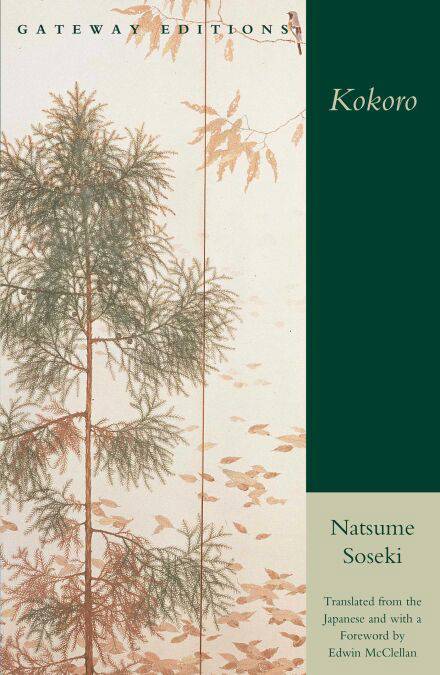
- Afhalen na 1 uur in een winkel met voorraad
- Gratis thuislevering in België vanaf € 30
- Ruim aanbod met 7 miljoen producten
- Afhalen na 1 uur in een winkel met voorraad
- Gratis thuislevering in België vanaf € 30
- Ruim aanbod met 7 miljoen producten
Zoeken
Omschrijving
"The novel sustains throughout its length something approaching poetry, and it is rich in understanding and insight. The translation, by Edwin McClellan, is extremely good." —Anthony West, The New Yorker
Kokoro, which means "the heart of things," explores emotions familiar to everyone—love and hate, hope and despair, companionship and loneliness.
Sensei, a man seen against the rich background of old Japan entering the modern era, is outwardly successful. He has position, wealth, a charming wife. But deep in the heart of things, he is harried with a profound sense of isolation whose cure lies only in "faith, madness, or death."
His long-hidden secret, divulged to a young friend who faces a similar dilemma, is told with mounting intensity. Sensei confesses the crime of his young manhood, a crime in which, with all the appearance of innocence, he destroyed his best friend, the woman he loved—and himself.
The genius of Natsume Soseki, Japan’s greatest modern novelist, lies in his ability to express universal emotions with the beautiful restraint of the Japanese spirit. Under his pen, themes which have become almost hackneyed take on new fascination and vigor.
Kokoro, which means "the heart of things," explores emotions familiar to everyone—love and hate, hope and despair, companionship and loneliness.
Sensei, a man seen against the rich background of old Japan entering the modern era, is outwardly successful. He has position, wealth, a charming wife. But deep in the heart of things, he is harried with a profound sense of isolation whose cure lies only in "faith, madness, or death."
His long-hidden secret, divulged to a young friend who faces a similar dilemma, is told with mounting intensity. Sensei confesses the crime of his young manhood, a crime in which, with all the appearance of innocence, he destroyed his best friend, the woman he loved—and himself.
The genius of Natsume Soseki, Japan’s greatest modern novelist, lies in his ability to express universal emotions with the beautiful restraint of the Japanese spirit. Under his pen, themes which have become almost hackneyed take on new fascination and vigor.
Specificaties
Betrokkenen
- Auteur(s):
- Vertaler(s):
- Uitgeverij:
Inhoud
- Aantal bladzijden:
- 248
- Taal:
- Engels
Eigenschappen
- Productcode (EAN):
- 9781684513758
- Verschijningsdatum:
- 23/05/2022
- Uitvoering:
- E-book
- Beveiligd met:
- Adobe DRM
- Formaat:
- ePub

Alleen bij Standaard Boekhandel
+ 11 punten op je klantenkaart van Standaard Boekhandel
Beoordelingen
We publiceren alleen reviews die voldoen aan de voorwaarden voor reviews. Bekijk onze voorwaarden voor reviews.











